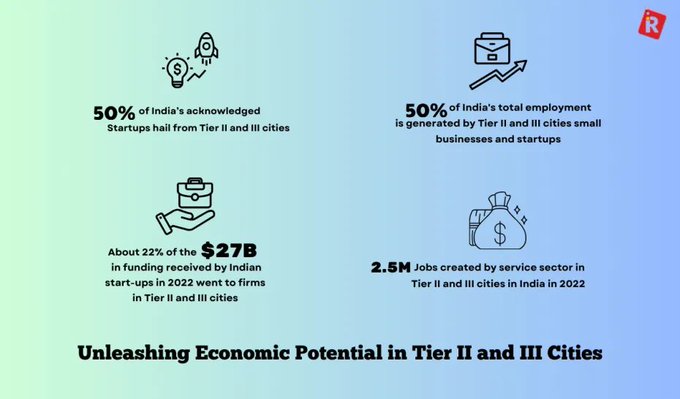Back
More like this
Recommendations from Medial
Rohan Saha
Founder - Burn Inves... • 1y
Just as we look at India’s second-hand car market, we can similarly look at India’s second-hand mobile market. There is still a significant gap here, especially in Tier 3 and Tier 4 cities. While there are some startups in Tier 1 cities, no one is cu
See MoreJeet Sarkar
Technology, Developm... • 1y
The Indian government has recently shared statistics that reveal that one startup is launched every 15 minutes in the country. Of these, 52% of the startups are launched exclusively in tier-2 and tier-3 cities. The government further said that star
See MoreCzone wave
Hey I am on Medial • 10m
Piyush Goyal’s Vision: Startups Are the Backbone of New India "Startups are the backbone of New India. They are the key to unlocking our nation's potential." – Piyush Goyal, Minister of Commerce & Industry India’s startup ecosystem has seen an expl
See MoreDownload the medial app to read full posts, comements and news.
















/entrackr/media/post_attachments/wp-content/uploads/2021/08/Accel-1.jpg)


















